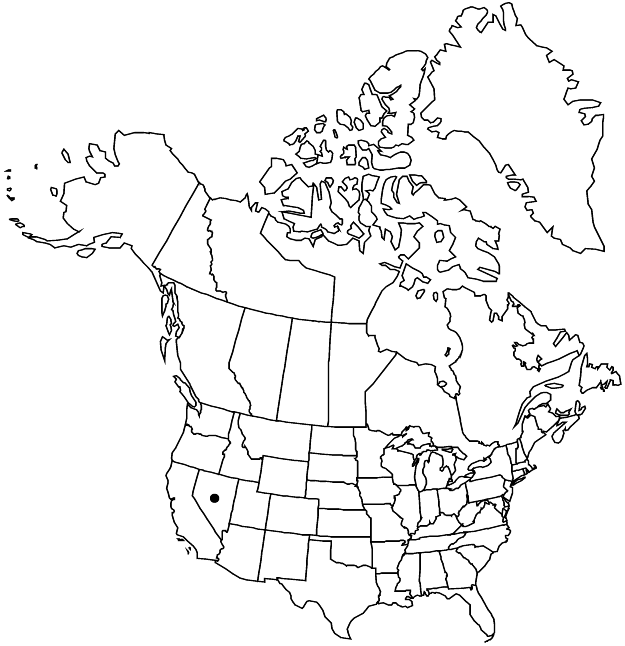Difference between revisions of "Eriogonum holmgrenii"
Leafl. W. Bot. 10: 184. 1965.
FNA>Volume Importer |
FNA>Volume Importer |
||
| Line 49: | Line 49: | ||
|publication year=1965 | |publication year=1965 | ||
|special status= | |special status= | ||
| − | |source xml=https://jpend@bitbucket.org/aafc-mbb/fna-data-curation.git/src/ | + | |source xml=https://jpend@bitbucket.org/aafc-mbb/fna-data-curation.git/src/f6b125a955440c0872999024f038d74684f65921/coarse_grained_fna_xml/V5/V5_548.xml |
|subfamily=Polygonaceae subfam. Eriogonoideae | |subfamily=Polygonaceae subfam. Eriogonoideae | ||
|genus=Eriogonum | |genus=Eriogonum | ||
Revision as of 20:09, 24 September 2019
Herbs, matted, scapose, 0.1–0.5 × 0.5–3 dm, glandular-hairy, greenish. Stems matted, with persistent leaf bases, up to 1/5 height of plant; caudex stems matted; aerial flowering stems scapelike, erect, slender, solid, not fistulose, 0.03–0.3 dm, glandular-hairy. Leaves basal, fasciculate in terminal tufts; petiole (0.1–)0.2–0.6(–1) cm, floccose and glandular; blade oblanceolate to spatulate, 0.2–0.5(–1) × (0.1–)0.2–0.4 cm, glandular and densely white-tomentose abaxially, less so to floccose and greenish adaxially, margins plane. Inflorescences capitate, 0.6–0.9(–1) cm; branches absent; bracts 4–6, scalelike, narrowly lanceolate, 0.8–1.4(–1.8) mm. Peduncles absent. Involucres 2–4 per cluster, campanulate, (1.5–)2–3 × 2–3 mm, membranous, sparsely glandular-puberulent; teeth 5, erect to spreading, 1–1.3 mm. Flowers 2.5–3(–3.5) mm; perianth white to rose, sparsely glandular; tepals connate proximal 1/4, monomorphic, spatulate to obovate; stamens exserted, 2.5–3(–3.5) mm; filaments pilose proximally. Achenes light brown, 2.5–3 mm, glabrous except for slightly roughened beak.
Phenology: Flowering Jul–Sep.
Habitat: Quartzite or limestone outcrops, slopes, and ridge tops, high-elevation sagebrush communities, alpine conifer woodlands
Elevation: 3200-3600 m
Discussion
Of conservation concern.
Eriogonum holmgrenii is closely related to E. gracilipes, and like that species it occurs with Great Basin bristlecone pine (Pinus longaeva D. K. Bailey). It is restricted to the Snake Range in White Pine County, and is regarded as a “sensitive” species by the U.S. Forest Service and the state of Nevada. The species is occasionally seen in cultivation.
Selected References
None.
